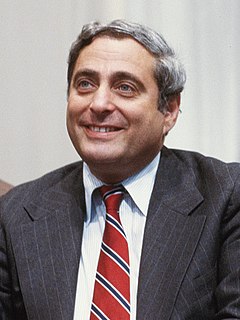A Quote by Warren MacKenzie
When Bernard [Leach] wrote his book, he wrote about the fact that even when pots are made in a series, there is a personality to each pot and that the person who made it reflects their personality into the clay.
Related Quotes
When we worked at the pottery, we did learn to make pots, that is, the physical act of making the pot. We learned to control clay, to put it where you want it and not just wherever it wanted to go, and that was valuable. At the end of about six months, though, I think if that was all we had, we may have been inclined to leave because the workshop did not challenge us so much as living with [Bernard] Leach did.
We had a wonderful trip, a seven-day trip, talking and sitting in the sun and so forth [with Bernard Leach]. And as we were approaching England, Leach said, "Do you have a place to live?" And we said, "No, we didn't." We hadn't worried about that. But Bernard had just separated from his second wife, which we had not realized, and Bernard was a person who could not stand to live alone. So he said, "Would you like to share my house with me?" Naturally we said yes.
In the Leach Pottery we did most of our work on the wheel. [Bernard] Leach did a little work in the studio, which was press-molded forms, plastic clay pressed into plaster forms to make small rectangular boxes and some vase forms, which he liked to make. These were molds which had been made to an original that he had modeled in solid clay, and during our work there, sometimes I would be pressing these forms as a means of production.
You find a personality whom you think the TV audience will embrace and find a format that is tailor-made for the personality. In the case of Andy Griffith, we moved the personality of a wily country shark - a funny and shrewd guy - into another arena. In this case, he is a lawyer, and it is a dramatic series.
If [Bernard Leach] didn't like the drawing, he'd X it out and do another one and change the form a little bit. And when he was all done, he would stuff these pieces of paper in his pocket and go off to the pottery, and when he wanted to make pots, he would then take these out and he'd begin to produce the pot that he had designed on paper in front of us.
In the helter-skelter of this book, I didn't develop my views as theory. In fact, I even believe that efforts of that kind are tainted with ponderousness. Nietzsche wrote "with his blood," and criticizing, or, better, experiencing him means pouring out one's lifeblood. It was only with my life that I wrote the Nietzsche book that I had planned.
2Pac wrote about life threatening situations after being shot so often, it made it seem like he was obsessed with it. He even wrote music and material that he left behind after he died that made reference to him dying already. I think the significance in that ties back to us knowing that that's our fate.
In searching for further training we turned to England and Bernard Leach. We thought since we had responded to his book so strongly that this would be the sort of training that we would like to have. We saved money, during the summer went to Europe, and the first stop was to go to England, visit the Leach Pottery and ask Leach if he would take us on as apprentices.
It was as if personality itself had a 'face'. This non-physical face of personality seemed to be the real key to personality change. It remained scarred, distorted, 'ugly' or inferior the person himself acted out this role in his behaviour regardless of the changes in physical appearance. If this 'face of personality' could be reconstructed, if old emotional scars could be removed, then the person himself changed, even without facial plastic surgery.























